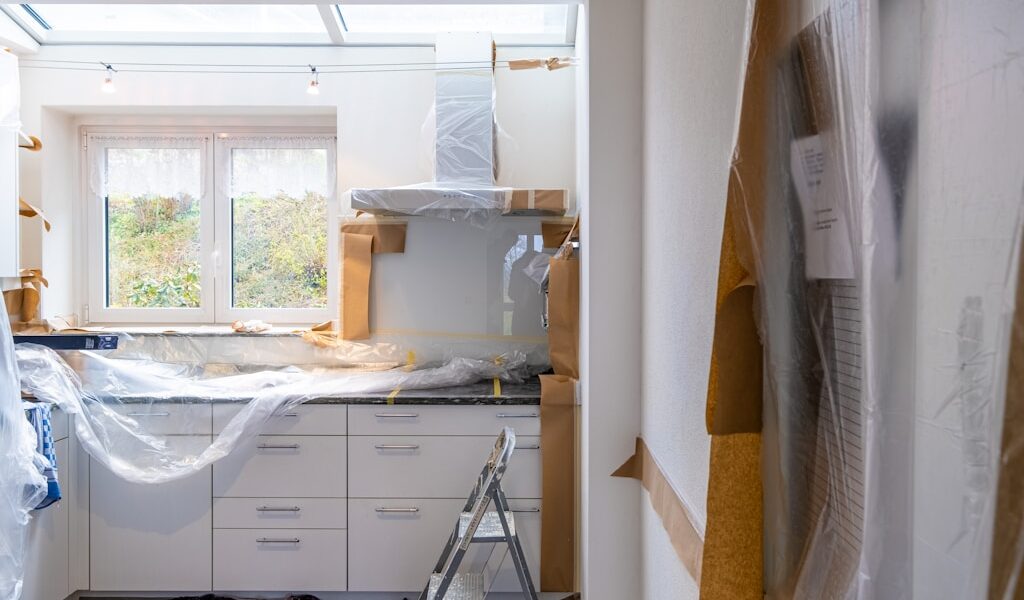Home Renovation in Seattle: A Comprehensive Guide
Seattle is a vibrant city with a dynamic real estate market. Homeowners often consider renovation to enhance living spaces or increase property value. Renovation can range from small updates to major overhauls. Understanding the process helps avoid common pitfalls. Knowing local regulations, materials, and design trends is crucial.

Understanding Seattle’s Housing Market
The housing market in Seattle is unique. Properties vary from historic homes to modern condos. Each presents different renovation challenges. The city’s geography and climate also impact renovation choices. The damp weather requires careful selection of materials and construction techniques.
Permits and Regulations
Seattle has stringent building codes. Before starting any project, check if permits are needed. Renovations involving structural changes, plumbing, or electrical work usually require permits. The Seattle Department of Construction and Inspections provides guidelines. Failing to get the right permits can lead to fines or having to redo work. It’s essential to budget time for the permitting process.
Choosing the Right Contractor
A reliable contractor is key to a successful renovation. Look for licensed and insured professionals. Seek recommendations from friends or online reviews. Interview potential candidates and ask for past work examples. Get detailed estimates and understand what is included. Clear communication with the contractor helps avoid delays and cost overruns.
Renovation Costs and Budgeting
Set a realistic budget. Costs can vary greatly depending on the scope and choices of materials. Kitchens and bathrooms are often the most expensive. Setting aside a contingency fund is wise. Unexpected issues, like hidden water damage, can arise. Research financing options if needed. Renovation loans or refinancing might be beneficial.
Popular Renovation Trends in Seattle
Current trends reflect both aesthetics and functionality. Open floor plans remain popular. They enhance natural light and create multipurpose living areas. Sustainable building practices are in demand. Using recycled materials or installing energy-efficient systems is a focus for many. Incorporating smart home technology is becoming standard. This includes security systems and energy management.
Kitchen Renovations
Kitchens are central to most homes. Updating this space can significantly impact property value. Consider modern appliances and durable countertops. Quartz and granite are popular choices. Efficient storage solutions improve functionality. Custom cabinets or drawer organizers optimize space. Lighting is another key aspect. Layered lighting enhances both functionality and ambiance.
Bathroom Upgrades
Bathroom renovations can freshen up a home. Focus on fixtures and finishes that match your style. Walk-in showers with frameless glass are trending. They offer a clean and spacious look. Heated floors add comfort, especially during Seattle’s cold months. Water-efficient fixtures reduce environmental impact and utility bills. Soft lighting creates a relaxing atmosphere.
Living Room Improvements
The living room is often the first impression of a home. Updating flooring or adding fresh paint can transform the space. Consider hardwood or durable laminate for flooring. It’s both practical and stylish. Built-in shelving adds character and functionality. Creating an accent wall with bold paint or wallpaper provides a focal point.
Basement Remodeling
Basements offer valuable extra space. Renovate these areas for additional living quarters or recreational areas. Moisture control is crucial due to Seattle’s damp climate. Proper insulation and dehumidifiers help maintain a comfortable environment. Consider soundproofing if converting to a home theater or music room.
Exterior Home Renovations
Exterior updates enhance curb appeal. Start with the roof and siding. Ensure they’re in good condition to protect from Seattle weather. Replace old windows with energy-efficient models. This can reduce heating costs. Landscaping also plays a vital role. Native plants require less maintenance and thrive in local climates. Adding a deck or patio increases outdoor living space.
Historic Home Considerations
Seattle has many historic neighborhoods. Renovating these homes requires special care. Maintaining architectural integrity is important. Local guidelines often dictate allowable changes. Pay attention to details like trim, color schemes, and materials. Working with a contractor experienced in historic properties is beneficial. They understand the balance between preserving history and modernizing space.
Sustainability and Green Renovations
Sustainable renovations are gaining traction. Consider materials with a low environmental impact. Bamboo flooring and recycled glass countertops are good options. Energy efficiency is another priority. Installing solar panels or updated HVAC systems can reduce carbon footprints. Insulation improvements also contribute to energy savings. These upgrades can provide long-term cost benefits.
Planning Your Renovation Timeline
Effective planning minimizes disruptions. Determine which projects must be completed first. Structural work should precede cosmetic updates. Factor in time for permits, any necessary demolition, and post-renovation cleaning. Scheduling during Seattle’s drier months may prevent weather-related delays. Avoid rushing the process to ensure quality results.
DIY vs. Professional Renovations
Some homeowners choose DIY methods for cost-saving. Small projects like painting or minor landscaping may be manageable. However, tasks requiring skills like electrical or plumbing should remain professional. Mistakes can lead to higher costs or safety hazards. Weigh the pros and cons carefully.
Post-Renovation Tips
After renovations, regular maintenance is key. Follow recommended upkeep for new materials and fixtures. Address minor issues promptly to prevent major repairs. Evaluate the renovation impact on your lifestyle and make necessary adjustments. If selling, understand the added value renovations provide. This will help set competitive market prices.



